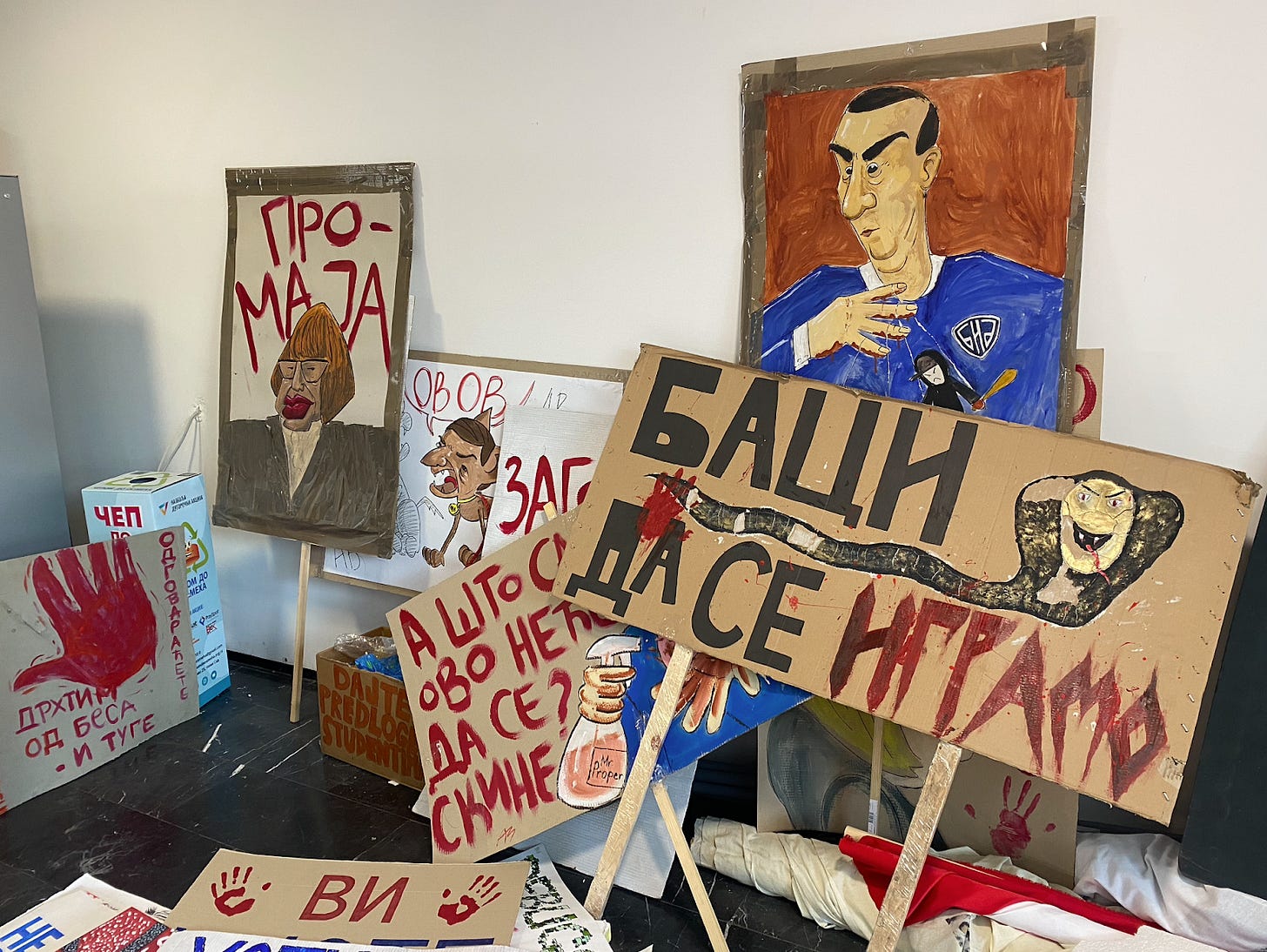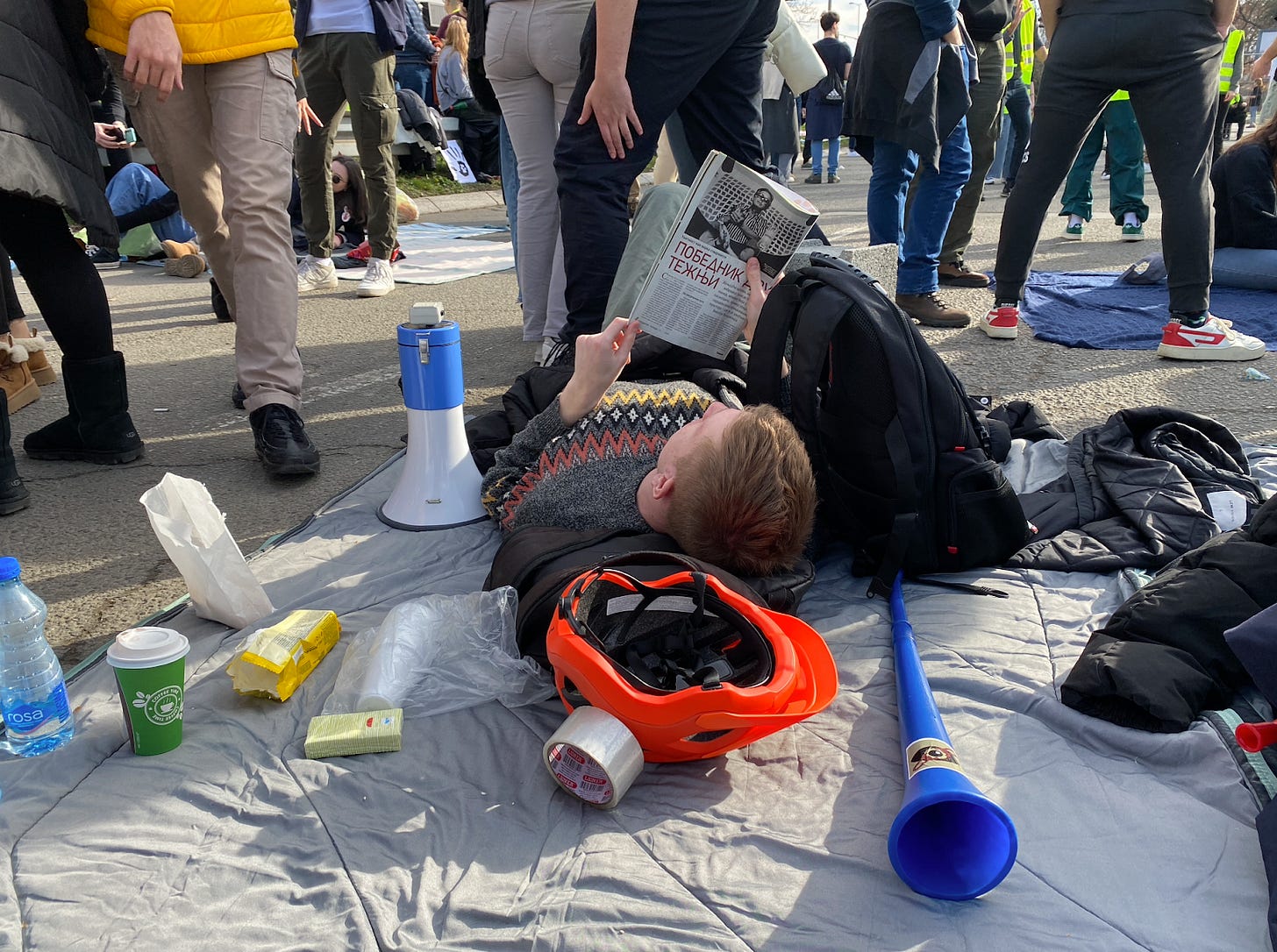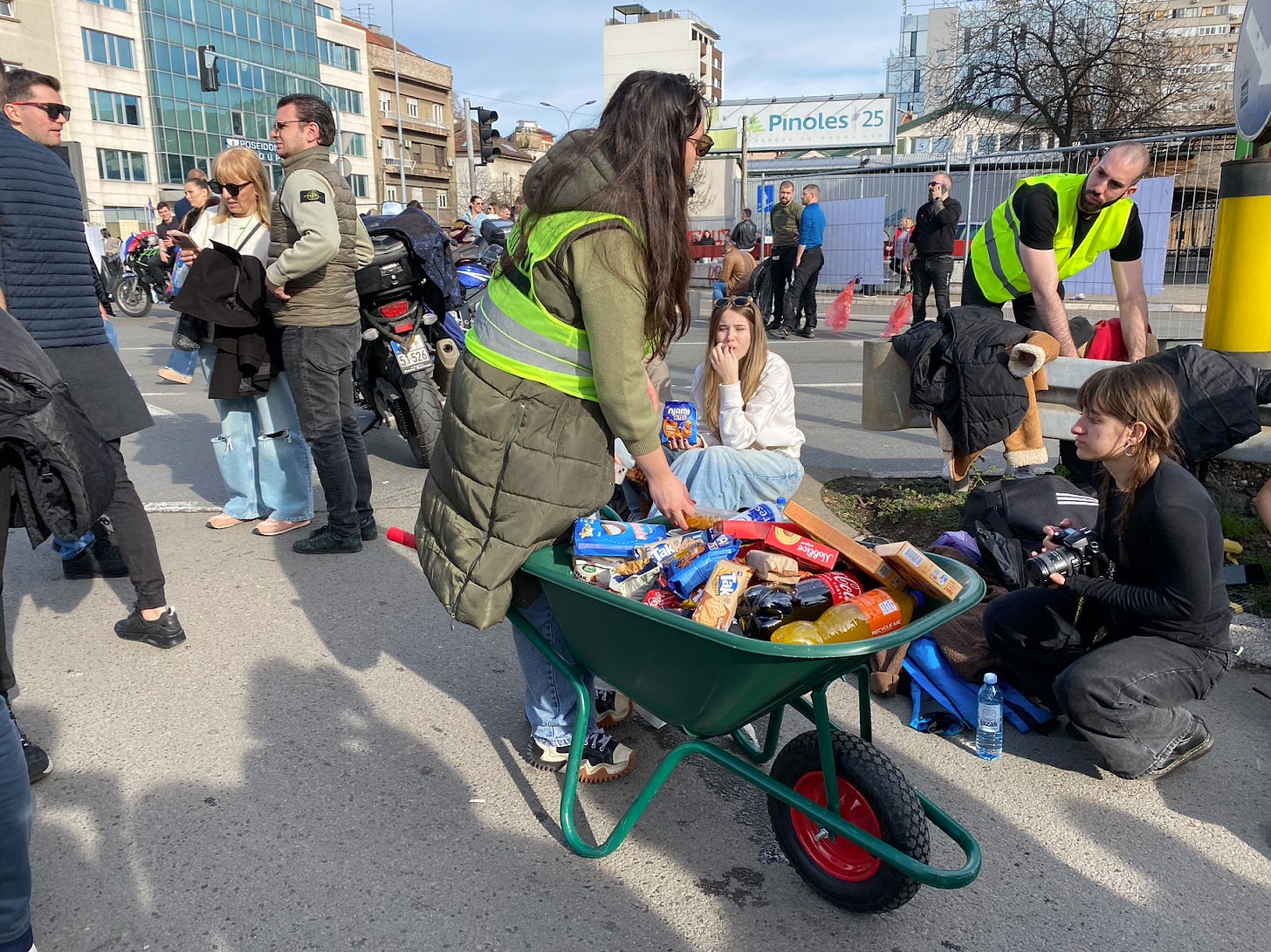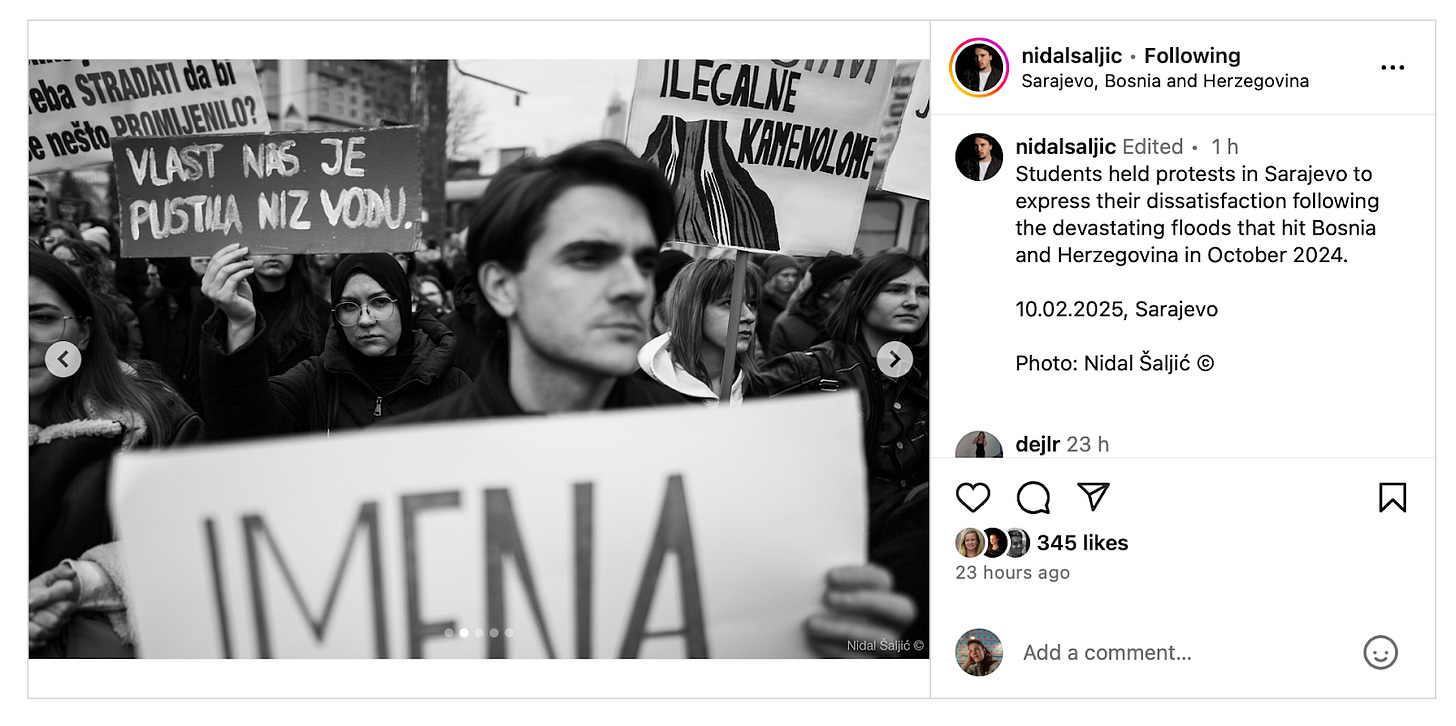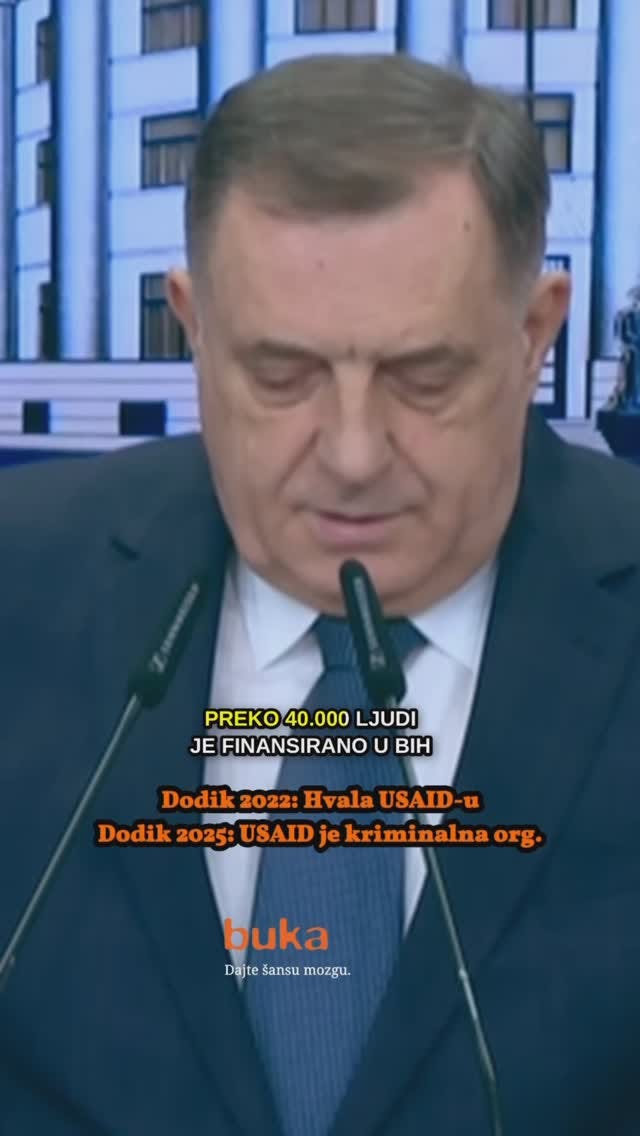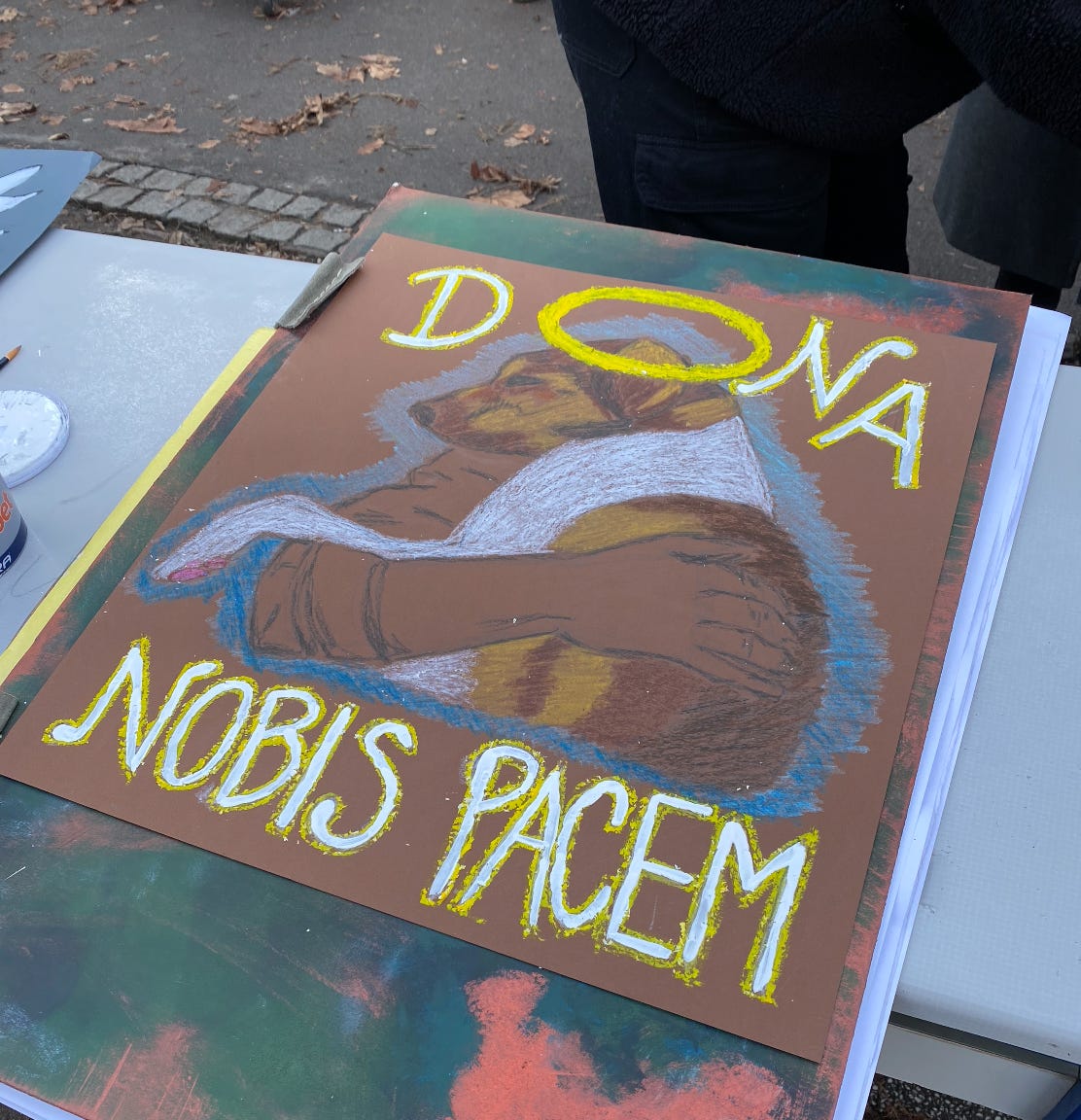Balkan Unscripted - What happens after a night in a kafana in Amsterdam
Your bi-weekly deep dive into the Balkans—stories, discoveries, and the conversations that matter. Curated with care by Ingrid and Marjolein, your go-to Balkan nerds.
How to Protest? A tutorial from Serbia’s Students
So, how do you pass the time when you're on the streets every day? If there’s one thing we've obsessed over while reporting in Belgrade, it’s how Serbia’s students have mastered the art of dissent. It looks spontaneous but make no mistake: it’s all meticulously prepared.
So, how do you fit in? What should you bring, do, and avoid?
Bring noise. A whistle, a vuvuzela, a megaphone, pans, a drum — anything loud will do.
Be ready for the long haul. Protests, particularly blockades, last for hours, sometimes days. Pack accordingly: books, card games, blankets, tents, food, and drinks.
Study the playbook. Read the “blockade cookbook” (read this article from Vreme). It is essential reading and freely available online. Key takeaways? Stay leaderless so the regime can’t single anyone out. And above all: stay peaceful, respectful but annoyingly persistant.
Sharpen your humour. You’ll need it for the banners. The best ones make fun of repressive institutions—the military police (Cobra forces Vučić threatens to send in “if he wanted to”), or the president himself. Exaggerate his most comical features (his lips?)
OK, enough – na blokade!
Marjolein and Ingrid
Things you need to know
Leaked emails and false promises. CINS takes on Rio Tinto Leaked emails reveal that Serbia’s Institute for Nature Conservation issued environmental conditions for Rio Tinto’s Jadar lithium project without expert approval. Internal objections warned of irreversible habitat destruction, but the Institute approved the conditions unchanged, raising concerns about the process’ integrity. The mine is poised to deliver lithium to the EU.
Bosnian students rally for justice, inspired by their colleagues in Serbia On February 10, 2025, at noon, a group of students organized a protest in front of Bosnia and Herzegovina's Parliament in response to the Jablanica tragedy, where 19 people lost their lives due to floods and landslides. They invited affected families, students from all faculties, and citizens to join them in demanding accountability from authorities. We would like to share these pictures from one of our favorite Bosnian photographers – Nidal Saljic.
Retailers in Croatia lose over €80 million as the boycott continues. In response to escalating price increases on basic products such as bread, eggs, vegetables and fruit, in January a boycott of supermarkets began in Croatia. The initiative came from a Facebook group called Halo, inspektore. According to Eurostat, since 2020, food prices in Croatia surged by 45%, surpassing the EU average increase of 33%. Although the boycott is working and spendings has dropped, it didn’t lead to lowered prices (yet). The boycott is spreading all over the Balkans, embroiling Serbia, Bosnia, Montenegro, North Macedonia and Bulgaria.
Imam’s Attack on Queer Bosnian Singer Triggers Rare Intervention. Bozo Vreco is one of Bosnia’s most well known singers, not only because of his beautiful voice, but also because of his remarkable appearance. Vreco describes himself as a "free" person who is male and female and on stage he plays with gender stereotypes. This is sometimes seen as controversial, particularly among the more conservative and patriarchal parts of the Balkans. After a Sarajevo imam insulted Vreco, calling him a ‘monster’, the Grand Mufti showed that this is not representative of what Bosnian islam thinks, “I want to assure you that Bosnia has enough openness to embrace all those who, in their pursuit of personal happiness, respect diversity and show reverence for what others hold sacred,” he wrote.
In case you don’t know Bozo Vreco and his music:
Quirky corner
Edi Rama, Albania’s prime minister, lost his temperduring a live stream on Instagram. Maybe he is angry and stressed because his party member and the mayor of Tirana Erion Veliaj was arrested on the suspicion of corruption and money-laundering? Or maybe this is just another show from Rama? Who knows, but it is entertaining nonetheless.
The Happy Machine: Rakija and Regulation in the Balkans. Though rakija exports are up, registered production is still dwarfed by front-yard distillation for personal consumption. The threat of regulation, however, lurks on the horizon. Read about it in Balkan Insight.
Meme of the week
Depending on geopolitical context and whoever is the president of the USA, Milorad Dodik either loves or hates USAID, remarked online magazine BUKA from Banja Luka.
Quiz question
Who is Dona? (see on the image below). And why did students in Novi Sad organise a wake for her? Do send us your answer and win a free coffee with us!
Hi, from us
We’re Ingrid & Marjolein, two freelance journalists covering the Balkans. One Saturday night — after a few glasses of rakija — this newsletter was born. Three days later, here we are. In each edition, we share stories that catch our eye, the ones worth reading, along with our observations from reporting in the region. So grab a coffee — or a rakija — and join us.





